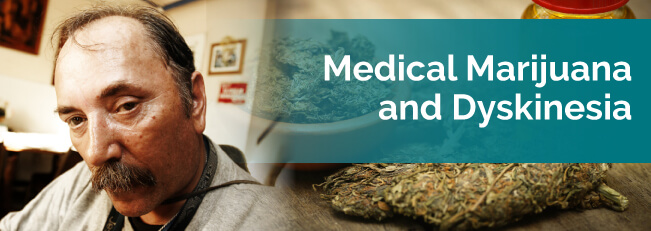
Since Parkinson’s disease results from low dopamine levels in the brain, some patients take medicine like levodopa or antipsychotics to raise them back up. However, one of the potential side effects of these drugs is dyskinesia.
Dyskinesia further interferes with your movement abilities when you already struggle with them. However, medical marijuana can function as a substitute for typical Parkinson’s medications, so you can avoid the risk of dyskinesia altogether.
People have experienced Parkinson’s disease for thousands of years. About one million Americans deal with the disorder today.
When someone has Parkinson’s, the dopamine levels in their brain deplete to the point that it inhibits their ability to move. While we usually associate dopamine with happiness, it also protects the part of the brain that governs movement. A lack of dopamine causes it to decay slowly, resulting in muscle tremors, muscle stiffness, slow movement and an unstable posture.
To counteract the patient’s low dopamine, doctors prescribe medicine like antidepressants, antipsychotics and other drugs specially made to treat Parkinson’s disease.
Two treatments can cause dyskinesia for patients when used for an extended period. A popular drug used for Parkinson’s is levodopa. Levodopa usually comes with a dose of carbidopa to make it more effective at a lower dosage. Some Parkinson’s patients also experience psychosis and take antipsychotics to treat it.
Dyskinesia causes a wide variety of involuntary movements that include painful muscle spasms. These spasms are unfortunately caused by medicine used to treat Parkinson’s, putting patients in a catch-22 situation. What are you supposed to do when the treatment you need for your movement problems makes your muscle spasms even worse?
Naturally, severe dyskinesia can significantly lower a patient’s quality of life. It can cause exhaustion, pain and weight loss. Some patients isolate themselves, making them feel angry, frustrated, depressed and lonely.
We’re still investigating why certain medicines cause dyskinesia. It affects younger-onset patients much more frequently compared to patients who began experiencing symptoms when they were over the age of 70. Levodopa-induced dyskinesia only happens with Parkinson’s patients — not other patients taking levodopa.
Since there’s currently no cure for dyskinesia, you can only adjust your dosage to mitigate your symptoms and make lifestyle changes to reduce stress. Higher dosages of the medicine causing dyskinesia and stress can exacerbate your problems.
While there is no official cure for dyskinesia, researchers work hard to create one. Extended-release amantadine has great potential for alleviating dyskinesia. It could enter the market soon if it passes FDA testing.
So, your best bet for avoiding dyskinesia symptoms is taking a medicine that doesn’t cause dyskinesia in the first place. Doctors commonly prescribe dopamine agonists that mimic dopamine’s behavior. But, since the agonists only imitate dopamine instead of replacing it, they don’t work as well as levodopa.
Most medications for Parkinson’s disease have side effects that make it harder to manage. But, what if there was an alternative medicine without those side effects? Enter medical marijuana.
MMJ has side effects like hunger, memory loss and drowsiness. But, they interfere less with daily functioning than side effects from standard treatments. Plus, it provides many benefits in one.
Relevant MMJ functions include:
Every state has its own laws regarding medical marijuana and how to sign up for the MMJ program. Talk with your doctor and dispensary staff to pursue the right treatment plan for you.
For more information about how cannabis can be used to treat Parkinson’s Disease, check out our resources: